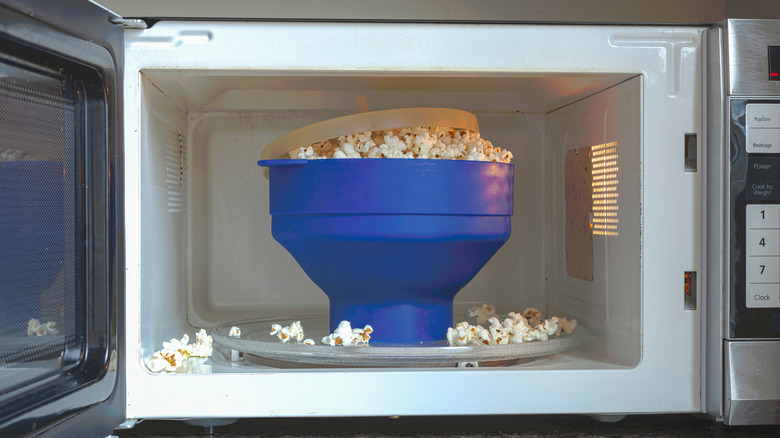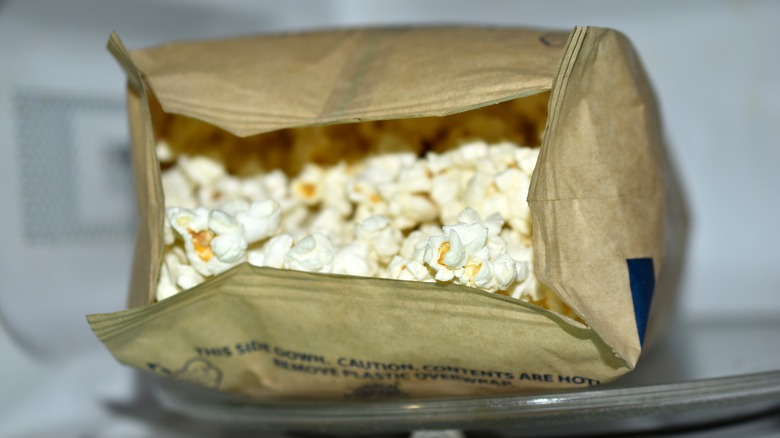Should You Worry About Getting Sick From Microwave Popcorn?
Worries about detrimental side effects that microwave popcorn can have to one's health have cropped up into headlines over the years. However, these worries were often raised as companies phased out the unhealthy substance. In 2007, ConAgra Foods announced that their brands, Orville Redenbacher's and ACT II, would no longer use butter that contains diacetyl, which creates a butter-like flavor. But, as the United States Department of Labor continues, it also causes lung disease in workers at factories that manufacture microwave popcorn.
Similarly, in 2018, the U.S. Food and Drug Administration (FDA) banned the use of Partially Hydrated Oils (PHOs), which are a major source of artificial trans fat. These were used as the oil component for popcorn (per Bicycling). The concern for oil is why the BBC suggests using coconut oil in popcorn. The instructions state that you heat the oil in a pan, place the popcorn in the oil, and cover the pan. By definition, however, this is not microwave popcorn.
Microwave popcorn isn't in the clear yet
So far, the story is that microwave popcorn has had issues but those issues have been addressed. However, there is still one issue with microwave popcorn. In 2019, Discover Magazine, a research paper published in the journal, Environmental Health Perspectives entitled, "Dietary Habits Related to Food Packaging and Population Exposure to PFASs," claimed that people who regularly consume microwave popcorn and other fast foods have higher levels of per- and polyfluoroalkyl substances (PFAS) in their bloodstream. PFAs are a class of industrial chemicals that are commonly called. "forever chemicals," because they essentially take forever to break down. Their presence in fast food is in packaging. So, burger wrappers are made with PFAS as are microwave popcorn bags.
Microwave popcorn brands BOOMCHICKAPOP and Orville Redenbacher were served with a lawsuit in May 2022 (per JD Supra). The argument is that despite brand-wide claims of only using real and natural ingredients, "the Products actually contain significant levels of PFAS chemicals." However, for many, there is little to fear as PFAS are so prevalent that microwave popcorn bags become a minor concern. That said, if you do want an alternative, The Kitchn has tested various ways of making popcorn and found wok-popped popcorn, whirley pop popcorn, and air popped popcorn to be superior to the microwave method.

